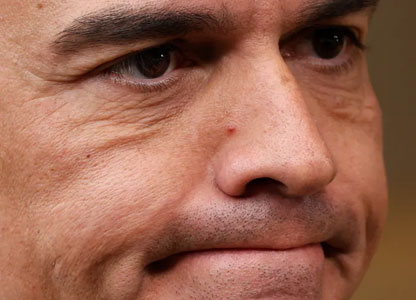Skip Murray opened a vape shop with her son in Minnesota in 2015, which was forced to close due to ever burdensome FDA regulations, the pandemic and the EVALI misinformation scandal. She has since become a tireless advocate for safer nicotine products, focusing on disadvantaged communities and neurodiverse nicotine users. She tweets at @imaracingmom and writes a weekly newsletter
A lot of your advocacy work focuses on nicotine use in neurodiverse populations and you’ve been very open on Twitter about why you think there is such a strong link between nicotine use and neurodiversity. Tell us about that.
Like many women or girls I was not diagnosed as a child. In 2020, I actually suffered from a major depressive episode and became suicidal and got diagnosed with depression and anxiety; all of that was related to years of abuse and trauma plus the problems that happened in our vape shop business. And as I worked with the therapist, she said, “there’s much more going on here”. And so I went through a lot of testing and a couple of months later got diagnosed with autism and ADHD. Since going public with my diagnosis, I’ve had many people who smoke or vape share with me that they also live with depression or some form of neurodiversity.
So your brain is wired differently, you think?
Very much so! For me personally I have a lot of sensory issues. I have an overactive brain. So I have trouble sleeping because I can’t stop thinking. I get hyper focused on certain topics and it’s all I want to read about or talk about. It’s all I do. There is no separation between work and recreation.
How does this all relate to your relationship with nicotine?
As a child, I was unique or different or weird, however you want to describe it. I got bullied a lot as a kid and I didn’t have very many friends. I had a very abusive father, but my grandfather was who saved me from all the icky things in life. I just thought the world of him. And like most people in my family, he smoked.
A lot of young people start smoking because they’re curious or because of peer pressure and staying true to being different than everybody else. I stole one of my grandfather’s cigarettes when I was ten and went behind the barn and had my first smoke because I wanted to be like him. I just admired and respected and loved him so much.
Many people share with me that their first cigarette was disgusting and made them cough, but they kept trying to smoke anyways. Within seconds that first cigarette for me made me feel calmer and clearer and the fog went away. That day is when I started smoking. I smoked until 2014 when I started vaping.
Walks us through how you found vaping, how you managed to give up smoking despite it being almost therapeutic for you?
I tried every method known to man to quit smoking. And a couple of times I did manage to quit for a short period of time, but never managed to stay quit. So I pretty much decided it was impossible for me to quit, and I was tired of failing. It’s really damaging to a person’s self-esteem to fail so much.
Then in 2014, my 29 year old son had a heart attack. We almost lost him, He had stents put in his heart and they saved his life. And the doctor told him if he wanted to see his daughter grow up, he had to quit smoking. So he bought a vape. I had never heard of vaping until he bought one.
It took him two weeks to quit smoking. At the time he was unemployed and he said “Mom, this really works. And it’s helping a lot of people. And we should help people”.
So he sold his TV and stereo and his truck and everything he could. He raised $5,000 and opened a vape shop. I helped him at the vape shop all the time and snuck out the back door to smoke my cigarettes. He tolerated that for a couple of weeks but eventually said I couldn’t smoke at the shop. He gave me my first vape and it was just a natural transition. I started vaping more than I smoked. And then I put my smokes out of the way. It was right around the 1st of March in 2015, and I couldn’t remember the last time I had a cigarette.
And, you know, we ended up helping three generations in our family stop smoking. After my son and I quit smoking, the rest of our family quit and now my two great-grandchildren are the first generation in my family growing up in a smoke free home. Their whole future is different than what we had. Already we’re seeing fewer ear infections, less bronchitis, fewer colds. When you grow up with smoking, you don’t realize the effect that the secondhand smoke has on little kids. I’m really proud of that we’re now a smoke free family.
What happened to the business?
In the the fall of 2018, I took over the shop and moved it to a different location. I absolutely loved being at the vape shop. Whether he owned it or I owned it, it didn’t matter. We helped so many people. We always kept the shop in the part of town where people have much lower incomes and higher rates of smoking. And we helped a lot of elderly people, veterans, neurodiverse people, low-income people. Just a very rewarding thing.
But then the EVALI crisis hit in 2019, where misinformation from agencies like the CDC attributed catastrophic lung failures to nicotine vaping, which we now know not to be true – and frankly, most people involved with THR at the time knew it wasn’t true either. Then, we had to shut down for several weeks in 2020 due to Covid.
And those two events, along with massive misinormation shared by the media, killed us. It used to be you helped somebody quit smoking every day and then once a week. And then it was like a miracle if one person a month came in to quit smoking. We also specialized in helping people who wanted to quit smoking and then quit vaping achieve that goal, which I guess some would say is not a good business plan because, eventually, you’re getting rid of customers. But it’s never been about money to us. It’s been about helping people achieve what they want to achieve.
So by the time I closed at the end of 2021, I had over a 60% drop in sales and was lucky to bring in enough income to pay rent and utilities. I sometimes had to buy product with my personal funds from my night job. So that’s when I made the decision to lock the doors. It’s been hard. I really miss helping people. And as an autistic person who usually doesn’t like to deal with the public and would rather be in my own little corner, I absolutely loved seeing people face to face and seeing the joy when they successfully quit smoking and then watching them become healthier and more active.
So why are we talking now? You’ve transformed into a full-time advocate and yet you’re also working in group homes to make ends meet. You could very easily have said, look, I’m done with this.
You have to decide what your goals are. And from day one, my goal was to put an end to the pain and suffering that I have experienced. Just about everybody important to me in my life has died from smoking. Smoking took my grandfather from me, my mother, my uncle, it has almost taken my son twice.
I got very depressed when I closed my shop. And some very wise people said, you can still help people. You just have to find a different way to do it. I have always been involved in advocacy. My son has learning disabilities, so when it came to testifying for local authorities, writing letters, whatever, I helped him do that.
I was with Taxpayers Protection Alliance for almost two years as a research fellow, did my own op eds and some public speaking; all of which I continue to do now that I’m on my own. And I’ve got a weekly newsletter that keeps people up to date on tobacco harm reduction issues (ed. Subscribe to Skip’s newsletter here). I’m still living by my original goal, which is to help people who smoke, and before I die, I really, really want to focus on helping people who don’t have enough food or a home. But we have to fix the misinformation about tobacco harm reduction problem first. You know, there’s just millions of people dying needlessly, and they deserve better than that.
Do you feel anger to those people who sprad the kinds of misinformation that closed your shop: supposed public health figures whose actions are preventing people from benefitting from safer nicotine like you and your family did? How do you stop yourself becoming completely jaded by the whole thing?
I used to feel a lot of anger. Now I try really hard to listen to what they say and try to to figure out where they’re coming from and try to walk a mile in their shoes. Some people have been overly consumed in a moral panic. But I do believe there should be better ways to balance the conversation and work on both prevention and cessation at the same time. And I really hope we get there soon.
I suffered a lot of trauma in my lifetime and it wasn’t fair. Having to close my shop also wasn’t fair. For a long time I let that anger eat my soul, and I let fear eat what was left of my soul. And that’s when it became advantageous to identify what my goal is and make sure I stick to my goal. And I want to help people who smoke tobacco. I want to end the death and disease.
I think too much of the conversation is focused on winners and losers, and who winners and losers might be is misidentified because the only winners are the people who either never smoke or are able to quit smoking. And the only losers are the people who get sick and die from smoking and their families. All the culture war does is make people feel like their lives don’t matter and no-one cares if we help them or not. And that’s not right.



